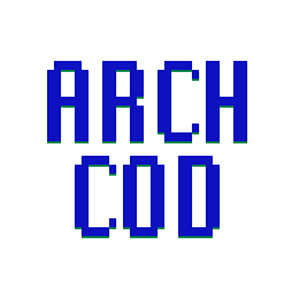The Cooper Union updated its website yesterday afternoon to note that it is postponing the exhibition Vkhutemas: Laboratory of the Avant-Garde, 1920-1930 given the ongoing conflict between Russia and Ukraine. The show, which was scheduled to open last night, is the culmination of student research into Vkhutemas, a design school in Russia that opened in 1920 and was subsequently shut down by Joseph Stalin after just ten years in operation. Today it is informally known as the “Soviet Bauhaus.”
Led by Anna Bokov, an Assistant Professor Adjunct at Cooper Union, work on the exhibition began in 2019 and continued as part of coursework in an architecture studio at Cooper Union. Bokov, an architect and an architecture historian, is the author of Avant-Garde as Method, a book about Vkhutemas published in 2021 by Park Books.
The school’s last-minute decision to postpone the show follows concern about its subject matter given the ongoing conflict between Russia and Ukraine. A representative shared that the move to postpone was a “carefully considered decision” and noted that the postponement came as a surprise to some exhibition partners when it was shared this afternoon.
In a statement shared by Hayley Eber, acting dean of The Irwin S. Chanin School of Architecture, the school stated it is working with “colleagues of Ukrainian descent” to ensure “accuracy and sensitivity” of the presented subject matter before making a choice on whether to move forward with the exhibition.
The full statement from the Acting Dean can be read here; an excerpt is as follows:
The exhibition of student research and architecture studio work examine a specific moment in architectural history from the 1920s against the context of the sociopolitical conditions and cultural affairs of that time. As this exhibition would be experienced amidst the present-day conditions, it has generated concerns and started instructive dialogue. We are grateful to our colleagues of Ukrainian descent who are helping us to work through this matter as we seek to balance, with accuracy and sensitivity, the scholarly study of architectural history amidst the current atrocities being exacted on the people of Ukraine by the Russian government. The complexities of the world’s geopolitical landscape have been compounded in the last year by the horror of Russia’s ruthless, oppressive campaign – a campaign that we and people and governments the world over rightly continue to denounce.
We have made the decision to postpone the opening of the exhibition to provide us with the time and space to fully consider these concerns and to make an informed decision on moving forward. If you were planning to attend tonight’s opening event, we appreciate your support and hope you understand this decision. It is important for us to stand in solidarity with the people of Ukraine and our own Ukrainian community members and neighbors as we thoughtfully explore our next steps.
The sudden announcement comes days after an op-ed published in Archinect by Peder Anker, a professor at NYU’s Gallatin School of Individualized Study, criticized the show. Anker wrote that attempts to cover up Putin’s actions are carried out by “Russian acolytes in New York” who are involved in a “cultural war of propaganda targeting our minds to soften our politicians’ support of Ukraine. It’s called ‘soft power.’” Given the active war, Anker, though he supports Bokov as a friend and colleague, questions why the show is relevant when mounted in New York’s Ukrainian Village neighborhood and at a school named for Chanin, a Ukrainian.
Since it was originally published on January 21, Anker’s text has been significantly edited. A prior version included an image of Bokov’s father with Vladimir Putin. (In other media, Bokov has noted that both her father and grandmother were architects.) As of January 25, the text is amended with an editor’s note that reads:
An earlier version of this op-ed included claims that the curator of this exhibition, Anna Bokov, is associated with Vladimir Putin. Bokov has stated that this is false and defamatory, so we have removed those comments from the op-ed. It was also not disclosed, prior to publication, that the author knows the curator personally, which could have led to intentional or unintentional bias.
Anker’s original text, as comments show, praised Bokov’s scholarship as “solid.” Additional comments debated the validity of Anker’s argument, and the author also wrote in response, including to clarify that the paragraph linking Andrey Bokov to Putin “was delated by the editors due to legal threats from the Bokov family.”
Patrik Schumacher commented, writing that “Vkhutemas remains an inspiration, representing an unprecedented burst of optimistic, constructive, creative energy with many noteworthy acomplishments.”
As described in Bokov’s book, Vkhutemas was an interdisciplinary art and design school in Soviet Russia that “offered free education and accepted students from underprivileged backgrounds.” While the student body at Vkhutemas was “ten to 20 times larger than that of the Bauhaus,” both institutions sought to build a “democratic educational model.” At the time, some prominent figures in the Russian avant-garde hailed from regions that are now part of Ukraine: Kazimir Malevich, painter of Black Square, was born in 1879 in Kyiv.
Currently, Bokov is scheduled to be in conversation with historian Jean-Louis Cohen about the exhibition on February 7. No changes to that event have been announced.
A new date for the exhibition’s opening has not yet been set.
AN has reached out to Cooper Union for comment and will continue to follow this story and provide updates as more news becomes available.



 العربية
العربية